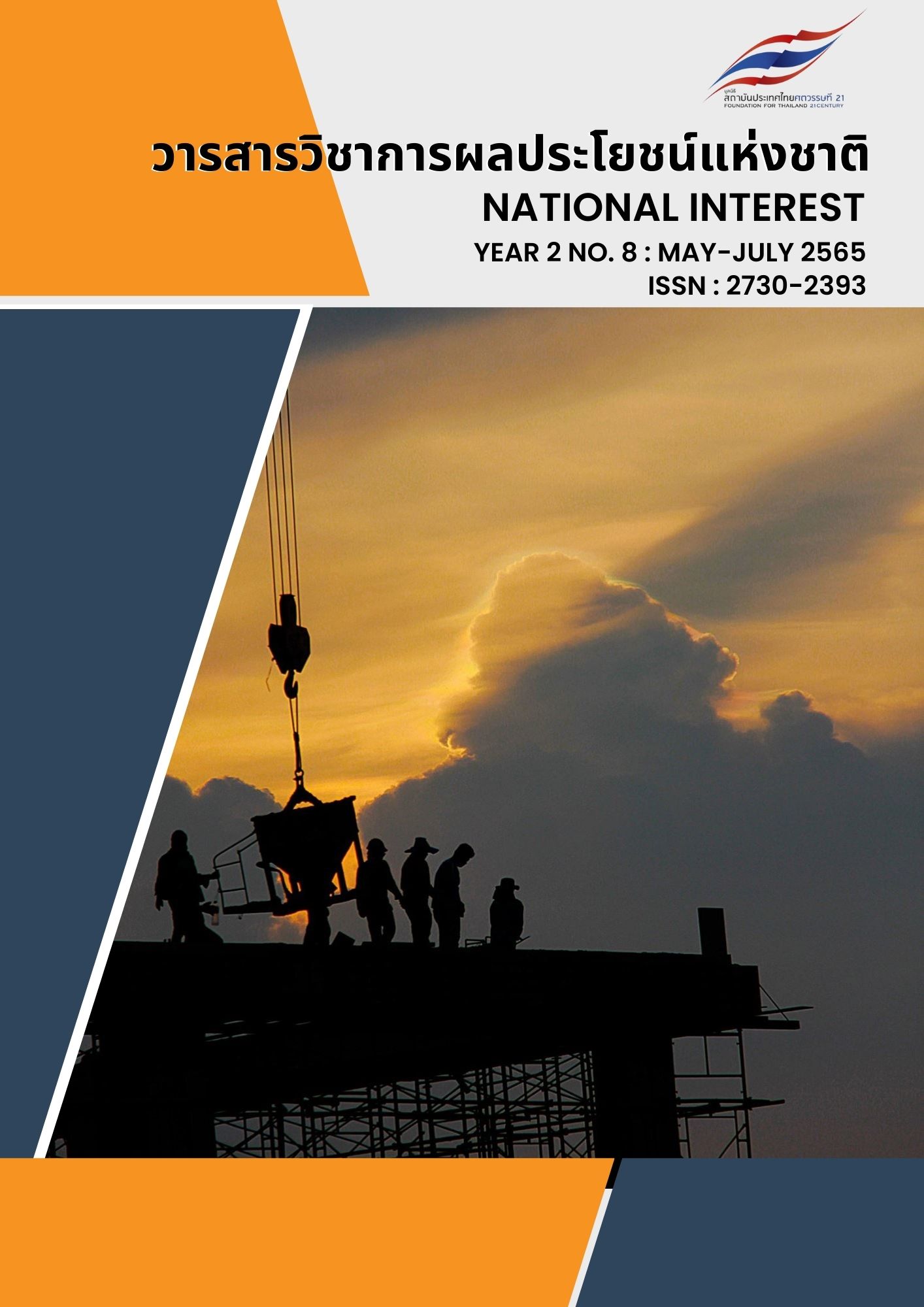When the world is not the same: a new adaptation of the university must happen.
Main Article Content
Abstract
The real mission of Thai Higher Education therefore, it is a new mission, in addition to taking into account the guidelines related to the four main missions of higher education institutions set by the Office of the Higher Education Commission. University personnel in the era of Education 4.0 will have to unravel the concept of the old framework that has been done and is working on to a new adaptation to be consistent with the current situation because higher education institutions are academic centers as a flag for society and is the foundation of the country's thinking to drive development in various fields Up in the country, especially in the Thailand 4.0 era, the world is not the same world anymore.
The true mission of Thai higher education These are the production of graduates 4.0, research 4.0, academic services to society 4.0, and the preservation of arts and culture 4.0, which must accelerate the insertion of latent missions in the form of applying innovations or information and communication technologies in teaching and learning management. To be in line with the context of the world 4.0 and education 4.0. This is to encourage personnel in higher education institutions in the era of Education 4.0 to unravel their concepts from the original framework that had been done and is being worked on to a new adaptation to be consistent with the current situation because higher education institutions are academic centers as a flag for society, especially in the Thailand 4.0 era, the world is not the same world anymore. And in order to be in line with the Thailand Education 4.0 era, which is considered the era that has entered the 21st century, Thailand must look at productivity in a manner that can keep up and move forward.
Article Details

This work is licensed under a Creative Commons Attribution-NonCommercial-NoDerivatives 4.0 International License.
Thai Journal of National Interest Academic Journal under Creative Commons Attribution-NonCommercial-NoDerivatives 4.0 International License The journal allows access or distribution of academic work without charge or registration. To support the exchange of knowledge Scope covers academic work in geopolitics. Geoeconomics and Innovation
Users can share, copy and distribute all information published in National Interest Academic Journal in any form or medium subject to the following conditions:
Citation — Permission to use, reproduce, distribute, or modify the work. But credit must be given to the owner of the work. If the work is used without credit, the name of the owner of the work will be Must obtain permission from the owner of the work first.
Noncommercial — The work may be used, reproduced, distributed, or modified. However, the work or article may not be used for commercial purposes.
Cannot be modified — The work may be used, reproduced, and distributed. But do not modify the work. unless permission is received from the owner of the work first
References
Bureau of Standards and Evaluation of Higher Education. (2015). Higher Education Internal Quality Assurance Manual. Office of the Higher Education Commission.
Case, Steve.( 2016.) The Third Wave: An Entrepreneur's Vision of the Future. (152-154). New York: Simon&Schuster.
Davies, John. Grobelnik, Marko and Mladenic, Dunja. (2009). Semantic Knowledge Management: Integrating Ontology Management, Knowledge Discovery, and Human Language Technologies. USA. Springer.
Easton, David. (1965). A Systems Analysis of Political Life. (67-75). New York: Wiley.
Jakkrit Siririn. (2017). Semantic-based Knowledge Management: Semantic Knowledge Management. Retrieved May 5, 2017. From www.okmd.tv/blogs/semantic-based-knowledge-management-Semantic Knowledge Management.
Jeera Hongladarom. (2016.) The Third Wave Concept. Retrieved May 5, 2017. From www.naewna.com/view/columntoday/24691.
Kasikorn Research Center. (2016). FINTECH and the Changing form of Financial Services. Retrieved May 5, 2017. From http://marketeer.co.th/archives/79585.
Office of the Basic Education Commission. (2015). OBEC is Ready to Move Forward with Reforming Basic Education. Retrieved May 5, 2017. From www.obec.go.th/news/58375.
Paitoon Sinlarat. (2016.) Education 4.0 is More Than Education. College of Education. Dhurakijbundhit University.
Phu Iamcharoenying. (2017, April28). The New Thai robot. Nation Weekend Magazine
Suwit Maesincee. (2016). Thailand 4.0. Retrieved 5 May 2017. From www.drborworn.com/articledetail.asp?id=16223.
Toffler, Alvin.(1980). The Third Wave. New York: William Morrow and Co.
Wikipedia. (2017). 3D Printing. Retrieved May 5, 2017. https://en.wikipedia.org/wiki/print_3_dimension.


